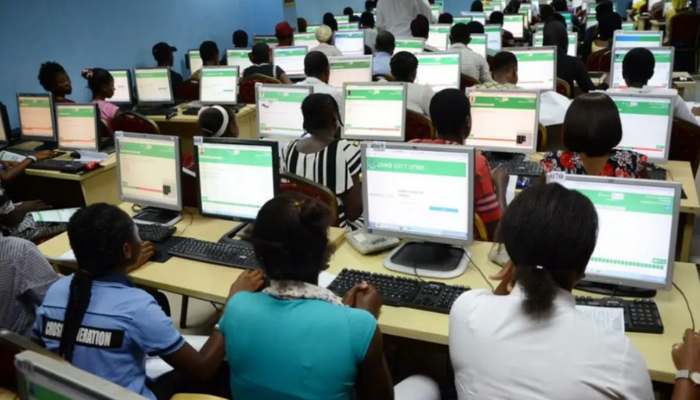[ad_1]
In a country battling a deepening education crisis, it is time to ask hard questions about the real barriers standing between Nigerian children and their right to quality education. One such barrier is the trio of high-stakes examinations—JAMB, NECO, and WAEC—which have, over the years, transitioned from being instruments of academic assessment to walls that shut many young Nigerians out of the future they deserve.
The recent public apology by the Registrar of JAMB over the omission of more than 300,000 candidates in the 2024 UTME results is a glaring sign of systemic failure. For a country already grappling with over 18 million out-of-school children, such an administrative error is not a mere oversight, it is a national embarrassment. It further erodes public confidence in a system that is supposed to open doors, not close them.
Beyond administrative failures, these examinations are fast becoming financial burdens that many families can no longer afford. In thousands of households across Nigeria, the cost of registering for WAEC and NECO is now competing with basic survival needs. When a child is forced to abandon education simply because their parents cannot pay for an exam, the system has failed in its core mission. This problem is especially pronounced in rural and low-income communities, where dropout rates are soaring as examination fees continue to rise unchecked.
SPONSOR AD
The situation is worsened by policy directions that are completely out of touch with realities on the ground. NECO’s announcement of transitioning to computer-based testing (CBT) by 2025 may seem progressive on paper, but it is dangerously disconnected from the lived experiences of students in public schools. How can we talk about CBT when many schools do not even have a functioning computer lab, let alone a consistent electricity supply? How do we expect students with no access to digital devices to compete fairly in such exams?
The same challenge has long plagued JAMB, which has continued to post students to distant centres, sometimes hundreds of kilometres away from their homes, in areas where insecurity is rife. Many candidates face not only logistical nightmares but also physical and psychological stress just to write a two-hour exam that may not reflect their true academic potential. This is not education, it is an exclusion.
Other countries with similar socio-economic challenges have taken more inclusive and student-friendly approaches. Several African and Asian nations have adopted a centralised, school-based continuous assessment model, where students are evaluated consistently over time, not by a single, high-stakes examination. This allows for a more holistic and equitable assessment of students’ abilities and reduces the pressure and barriers that standardised exams often impose.
It is time Nigeria seriously considers scrapping JAMB, NECO, and WAEC in their current form and replacing them with a more decentralised, flexible, and inclusive national assessment system. Such a system should be rooted in continuous school-based evaluations, overseen by credible education authorities, and standardised through quality assurance mechanisms, not by subjecting students to one-off high-stakes exams that determine their future in a single sitting.
We must also understand that real reform will require political will. Education must be made genuinely free and compulsory from primary through to senior secondary school—not just in policy but in practice. If we are serious about lifting children out of poverty and reducing the number of out-of-school youths, we must remove the structural and financial obstacles that stand in their way.
It’s time to end the illusion. Let us scrap what no longer works and begin to build an education system that gives every child a fair and fighting chance.
Tijjani Mukaddas wrote via [email protected]
Do you want to share a story with us? Do you want to advertise with us? Do you need publicity for a product, service, or event? Contact us on WhatsApp +2348183319097 Email: platformtimes@gmail.com
We are committed to impactful investigative journalism for human interest and social justice. Your donation will help us tell more stories. Kindly donate any amount HERE




